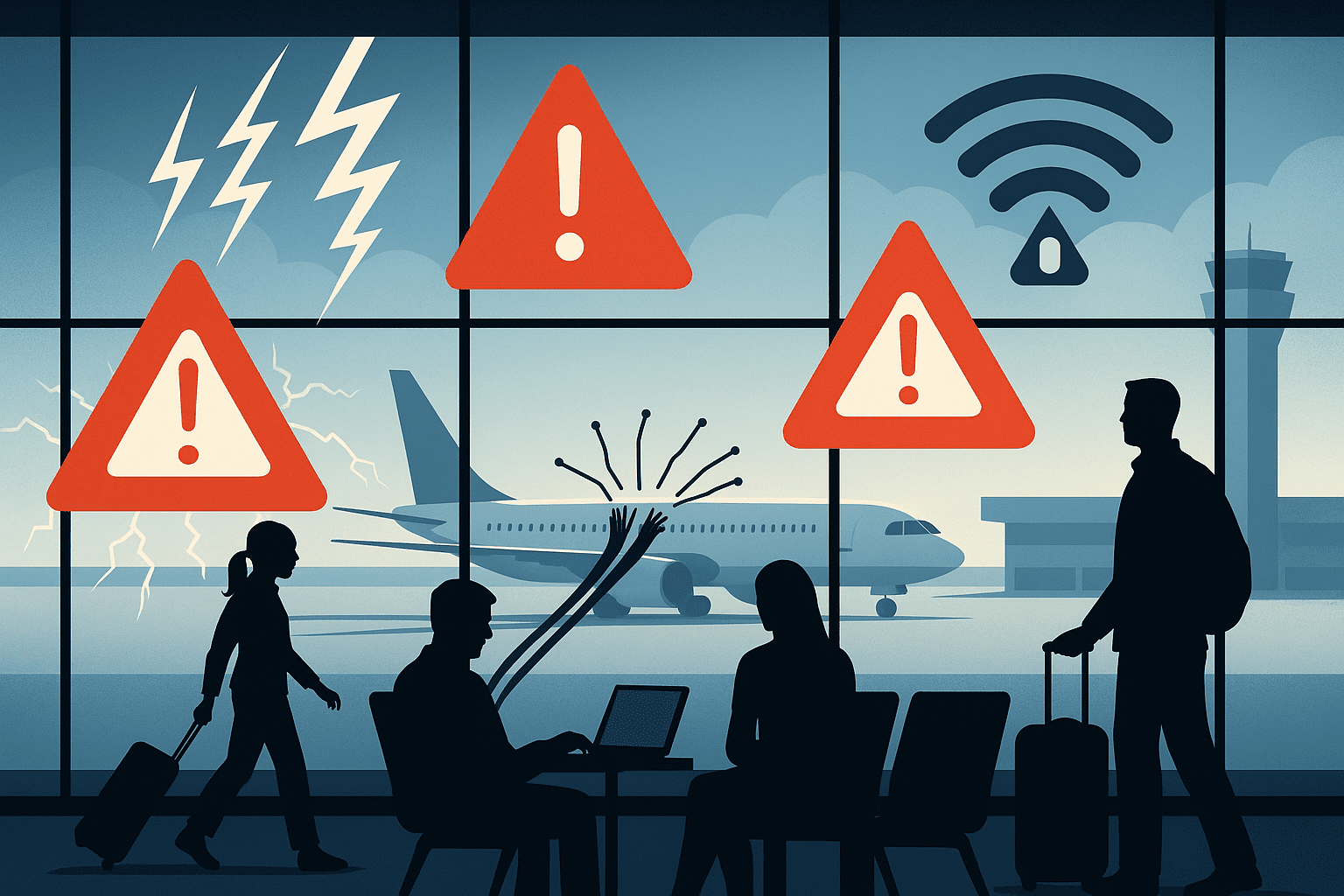Technology problems rocked the commercial aviation industry over the weekend, triggering hundreds of flight cancellations and widespread delays on both sides of the Atlantic. In Europe, the disruption centered on Collins Aerospace’s ARINC cMUSE system, which Brussels Airport described as suffering a cyberattack that affected passenger processing and baggage handling.
The Brussels-based airport said the incident was impacting operations, with manual check-in remaining available as airports and airlines work to restore automated processing. Collins Aerospace described the event to Reuters as a “cyber-related disruption” that compromised electronic check-in and baggage drop, though it stressed that manual processing remained possible.
London’s Heathrow Airport flagged the outage on Friday, and by Sunday night it advised customers that work to resolve and recover from the Collins system outage was ongoing, while noting that the vast majority of flights had continued to operate as airlines and airport teams worked to mitigate the impact.
Separately, U.S. operations faced their own disruption after a pair of severed fiber optic cables at Dallas Fort Worth International Airport disrupted the FAA’s data telecommunications and affected the Dallas TRACON facility, a key component of the nation’s air‑traffic control system. The FAA attributed the outage to multiple failures in the TDM data service provided by Frontier and cited accountability gaps at contractor L3Harris for failing to ensure redundancies functioned properly.
In a detailed note on the matter, American Airlines CEO David Seymour described how the cut cables severed primary and secondary data paths that support FAA radars, radio frequencies and computer systems, leaving the carrier and others with severely constrained operations at DFW. He added that the FAA developed a workaround to release flights from the gate, but the process remained slow and could not keep up with demand; at one point between 3:00 PM and 6:00 PM CT, American could depart only nine aircraft from DFW, compared with typical throughput of about 100 per hour. The carrier canceled nearly 700 flights and diverted 65.
The FAA later described the Dallas incident as a clear example of the United States’ aging air‑traffic control infrastructure and stressed the urgent need to modernize the national airspace system. Regulators also noted that ongoing state and local permitting obstacles would slow modernization efforts, underscoring the push to transition from analog systems to more resilient digital technologies.

